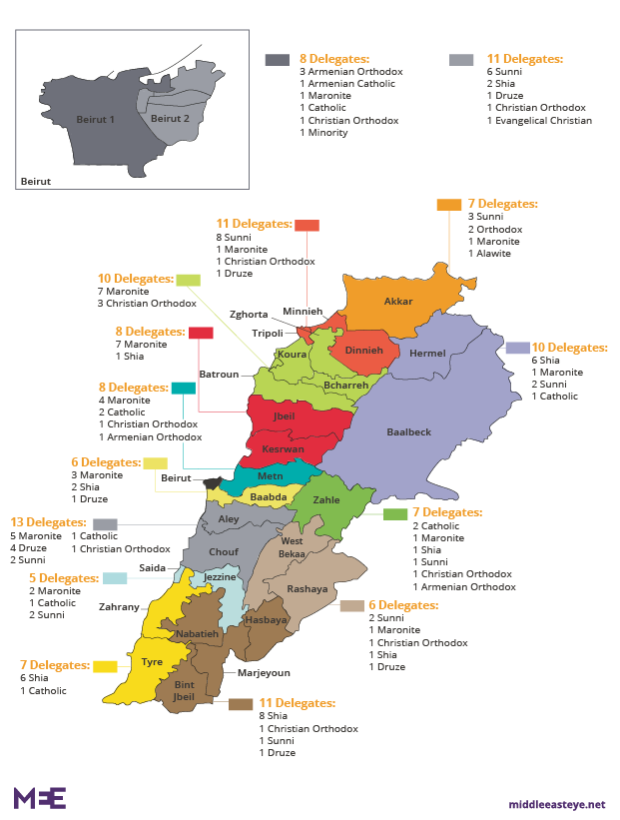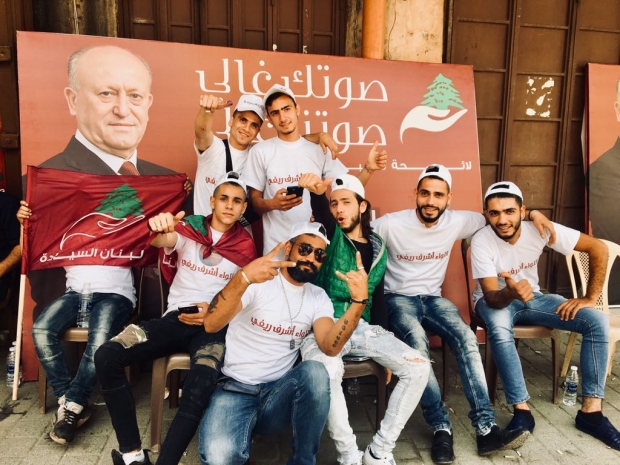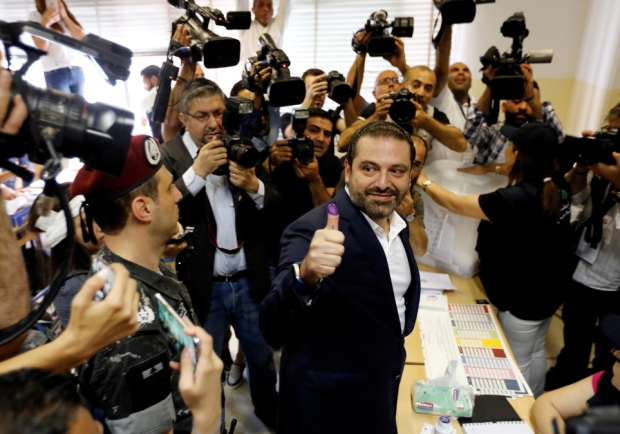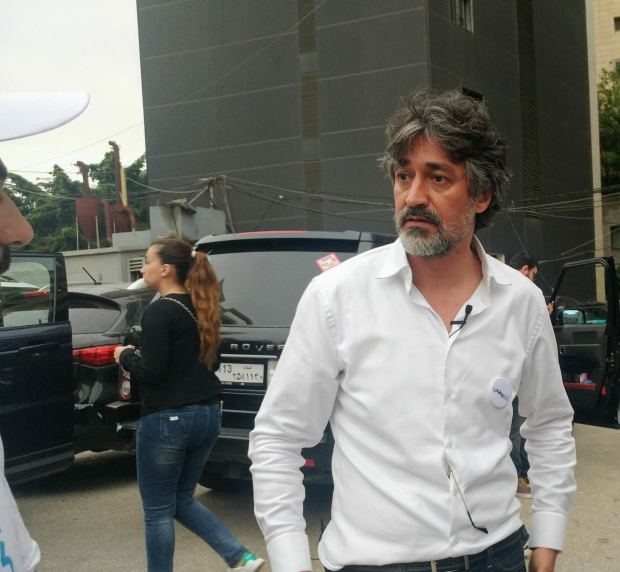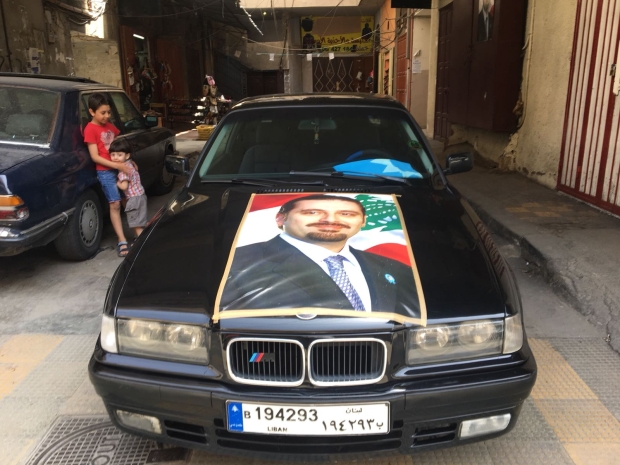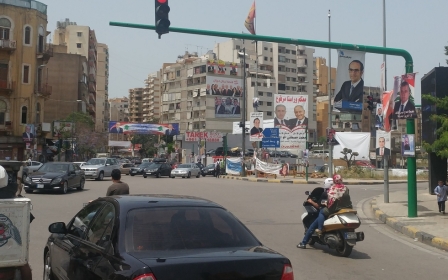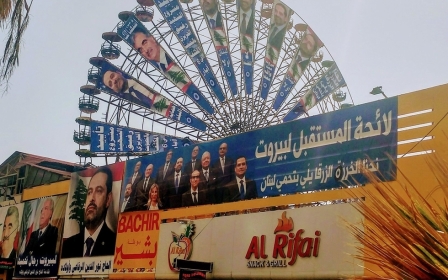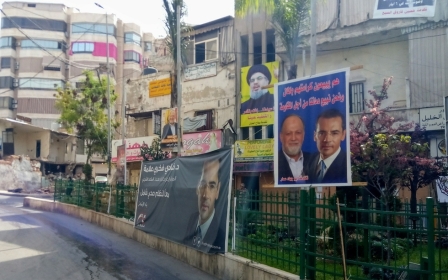Lebanon: Election day sees intense rhetoric amid low turnout
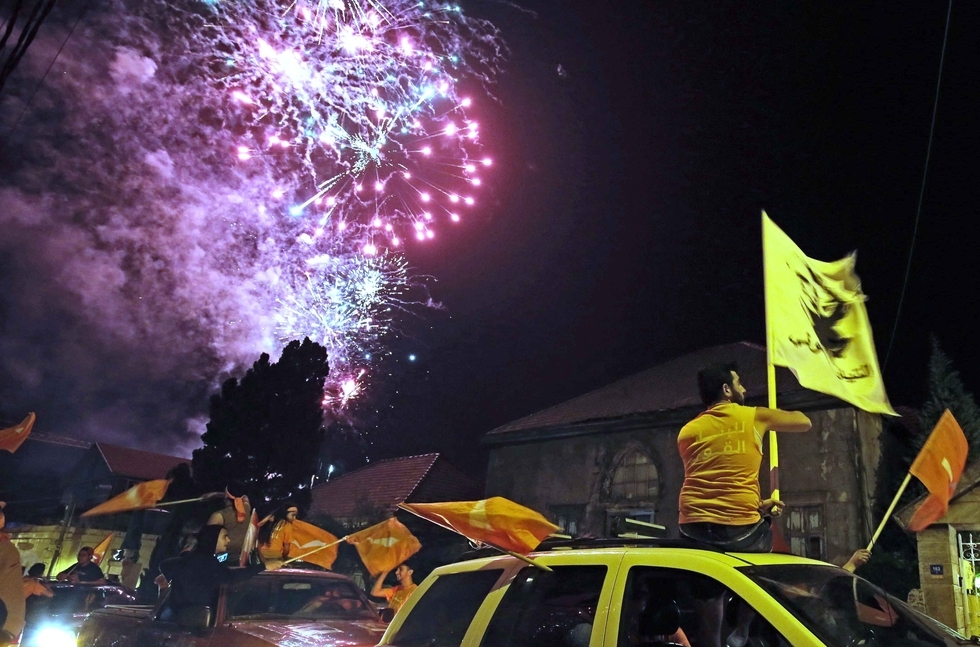
Lebanon's first parliamentary elections in more than a decdae have been marked by a low turnout, despite the intense rhetoric in the lead-up.
For all the posters, sectarian slogans, fear-mongering, sponsored social media posts and around-the-clock calls for people to vote, turnout dropped about five percentage points from 2009.
The final unofficial turnout was 49.2 percent, Interior Minister Nohad Machnouk said in a news conference early Monday.
The mostly Christian Beirut 1 district saw the lowest percentage of voters across the country, at 37.16 percent, according to numbers released by the interior ministry.
In the west side of the city, Prime Minister Saad Hariri’s Future Movement was facing off against a Hezbollah-backed slate, a host of other Sunni challengers, and civil society candidates.
Still, the intensity of the campaigns faded away at the polls. Unofficial figures show that only 41.25 percent of the voters cast their ballots in Beirut 2 on Sunday - the second-lowest turnout in the country.
In the rest of the country, the turnout was not much higher, reaching a peak of 63.31 percent in Beqaa 2, Rashaya-Western Beqaa.
Vote counting is under way, with results expected later than the midnight announcement seen in the 2009 polls.
Excitement and apathy
Across Lebanon voters expressed excitement and apathy in equal measure. "Change" was a recurring theme with many voters who spoke to MEE.
"It's a beautiful thing," 24-year-old Alaa said of voting for the first time. "We need change."
Parliament extended its mandate three times since 2009 - in 2013, 2014 and 2017 - citing security issues and problems with the electoral law.
This left many Lebanese waiting far longer than they should have to vote for the first time, with some only being able to cast their first ballot at the age of 30.
Yehya Shouman, an aluminium trader, spoke of unseating the entire parliament.
"We want to change all 128 of them, and more if possible," he told MEE.
In Tripoli, Hariri and his lists were competing against newly combative Sunni rivals in former justice minister Ashraf Rifi, ex-prime minister Najib Mikati and Faisal Karami, scion of a famous political dynasty.
The streets were calmer than usual. There was a strong army presence with military vehicles on patrol and soldiers on foot.
All eyes in the northern city are on Rifi, who has attempted to court Saudi support and Sunni voters with tough, anti-Hezbollah rhetoric.
"He is a man of justice, someone who will protect the Lebanese state," Badr Eid, a candidate on Rifi’s list, told MEE while he was voting in the Jabal Mohsen neighbourhood.
In the Christian-dominated North 3 electoral district, which includes Batroun, Bcharre, Zghourta and Koura, another high-profile battle was under way between the parties of Foreign Minister Gebran Bassil, former militia leader Samir Geagea, veteran anti-Syrian independent politician Boutros Harb and Damascus ally Sleiman Frangieh.
Bassil, president of the Free Patriotic Movement and son-in-law of President Michel Aoun, was vying to win a seat in parliament for the first time. His supporters and opponents both appeared to believe he had a good chance.
"I voted for him because he is a hard worker and I am sure he will improve a lot of things in Batroun," Dany, a 40-year-old supporter of the FPM, told MEE.
"It’s impossible for him to lose with the proportional system and that is unfair. I voted for the Lebanese Forces, my family always supported them, but this time I don’t think we can win," said Dana, a 22-year-old waitress from a village nearby.
The new electoral law, a highly complicated proportional system worked out last June, has potentially opened the door for independent candidates and outsiders, with the Kollouna Watani civil society coalition fielding lists in nine out of 15 districts.
In east Beirut, Kollouna Watani candidate Gilbert Doumit responded to news that some parties were vying to keep polls open past the 7pm deadline. It showed how concerned the political class was, he said.
"It's true that turnout is low. But in this low turnout we are very close to them," he told MEE. "There's high participation from our end. That's why they want to extend two hours for themselves."
One polling station visited by MEE in Beirut had more campaigners than voters.
Doumit said Lebanese lives were at stake.
"We are going through the worst time economically, politically, socially, democratically. We cannot repeat four more years like the years that have passed, no matter what," he said.
In Tripoli, support for civil-society candidates was more circumspect.
In one polling station, a woman who wished to remain anonymous told MEE that she agreed to be a delegate for one of the big candidates, who offered her $200, but she actually voted for the civil-society candidates.
"There needs to be some change. The same politicians and their sons have been mocking us for tens of years, what good did they bring? We need new faces," she said.
Bribery and violence
Across the country, reports of violence emerged.
A civil-society candidate in south Lebanon's Bint Jbeil was threatened by supporters of Hezbollah and its Shia ally the Amal Movement, Lebanese news website Al-Modon reported.
Lina Hmayed, who was running on the Kollouna Watani slate, was reportedly unable to leave a polling station for several hours after casting her ballot. The list's observers were also kicked out of the building.
A Hezbollah campaigner in Ghobeiri, in south Beirut, told MEE that the group respects democracy and never targets or intimidates opposing candidates.
"Everything is going smoothly," the campaigner, who identified himself as Abu Hadi, said.
In Choueifat, just south of Beirut, violence broke out in a polling station, with ballots strewn across a room.
Meanwhile in the Beqaa Valley of Zahle, reports emerged of clashes between the supporters of Geagea’s Lebanese Forces and Myriam Skaff’s Popular Bloc.
In a news conference, Skaff accused the Lebanese Forces of reverting to its civil war-era practices, when the group operated as a brutal right-wing militia.
She said she had been submitting complaints to the state all day long, but security forces did not respond.
"We had hoped for this day to pass in a civilised way, but unfortunately we have seen some unacceptable things," she said, fuming.
Geagea responded later by claiming Popular Bloc candidates were paying people to confiscate IDs and passports and prevent voters from casting their ballots.
He said his supporters went to address the matter and his party is proud of them. "They may spend a night in jail, but jail is for men," he said.
The Lebanese army deployed in Zahle to quell the disturbance.
Video footage emerged from north Lebanon that appeared to show Future Movement supporters handing out cash in return for votes.
Mohammad Nachar, owner of a glass factory in Tripoli, told MEE many people were waiting to receive money in order to vote.
“After 4pm, people will receive calls offering money for votes and they will go,” he said.
“Not everyone is like this of course, but here in Tripoli there is a lot of poverty, so if someone offers $100 cash why not vote for him?"
Sleiman, who was manning a Future Movement office in Tripoli, voiced similar sentiments.
"Honestly, people will vote for whoever pays the most. This is how you think when you are poor and you can’t feed your children. What else can we do? Take a boat to Europe?” he said.
"Personally, I like the ideas of civil-society candidates, but I met with someone from the Future Movement and he told me that if I put up posters for his list and open a little bureau on the day of the elections, he would find a job for me,” he added.
“He runs a big hospital nearby and has helped me in the past so I believe him. What other choice do I have?”
Elsewhere, problems of disabled voters at polling stations marred voting.
Many polling stations were found on buildings' higher floors, with no elevators or wheelchair access.
Interior Minister Nouhad Machnouk, who was overseeing the elections, admitted accommodations for disabled voters were inadequate, blaming a group of his ministry’s employees.
He said he had reprimanded those workers for their failure.
"I admit that there was a shortcoming," he said at a news conference, adding that disabled Lebanese should have been able to practise their right to vote like all other citizens.
New MEE newsletter: Jerusalem Dispatch
Sign up to get the latest insights and analysis on Israel-Palestine, alongside Turkey Unpacked and other MEE newsletters
Middle East Eye delivers independent and unrivalled coverage and analysis of the Middle East, North Africa and beyond. To learn more about republishing this content and the associated fees, please fill out this form. More about MEE can be found here.


